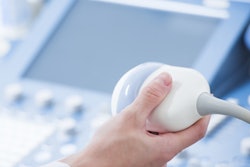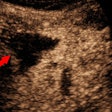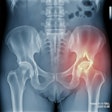
Facebook is for more than just keeping up with family and friends. Thanks to its private groups feature, the popular social media platform can also be useful for teaching critical care ultrasound skills, according to research published in the October issue of Chest.
And because social media is not only ubiquitous but also available in a variety of forms, the study findings suggest yet another way to educate physicians in a cost- and time-effective manner.
"Social media is readily accessible with multiple platforms to choose from," wrote a team led by Dr. Shiqian Li of the University of Southern California in Los Angeles. "Beyond connecting colleagues in a novel Socratic method, potential benefits include spaced learning, active participation, and an informal and personal learning environment."
Critical care ultrasound is an important skill, but there is currently no standard approach to teaching it, Li's group wrote. The researchers sought to investigate the feasibility of putting a critical care ultrasound curriculum into place via a social media platform; they started with Facebook (Chest, October 2018, Vol. 154:4, p. 550a).
Li and colleagues offered a traditional ultrasound curriculum to pulmonary and critical care fellows that included a presession skills assessment followed by a two-day, hands-on course. They then invited study participants to join a private Facebook group. Through a series of posts delivered over 20 weeks, the Facebook group offered 41 core skill lessons in critical care ultrasound divided into five categories. Posts included quizzes, cases, images, and links to relevant articles. After the Facebook curriculum ended, Li's team asked the participants to complete a survey, based on a five-point scale, to assess its effectiveness.
Ten fellows participated, including three first-year fellows, four second-year fellows, and two third-year fellows. Of the 41 Facebook posts, the mean number reviewed was 24.
Ninety percent of the study participants responded to the postcurriculum survey. Li and colleagues found the following:
- 56% of study participants stated that Facebook was an effective way to deliver content.
- 89% felt that the content was moderately to very useful.
- 56% said the Facebook curriculum enhanced their critical care ultrasound curriculum.
- 44% said the Facebook group motivated them to learn more.
- 44% said they would participate again in a similar Facebook education group.
The fact that most of the fellows believed the Facebook group content was useful and improved their learning -- even that it motivated them to learn more going forward -- suggests that Facebook and other social media may offer a useful way to teach content to a variety of learners, according to Li and colleagues.
"We believe that Facebook is a viable method for implementing a critical care ultrasound curriculum, and most of the fellows that participated agree and would join a similar group again if given the choice," the researchers concluded.
"Future study needs to be done to explore effectiveness of other [social media] platforms," they noted.




















